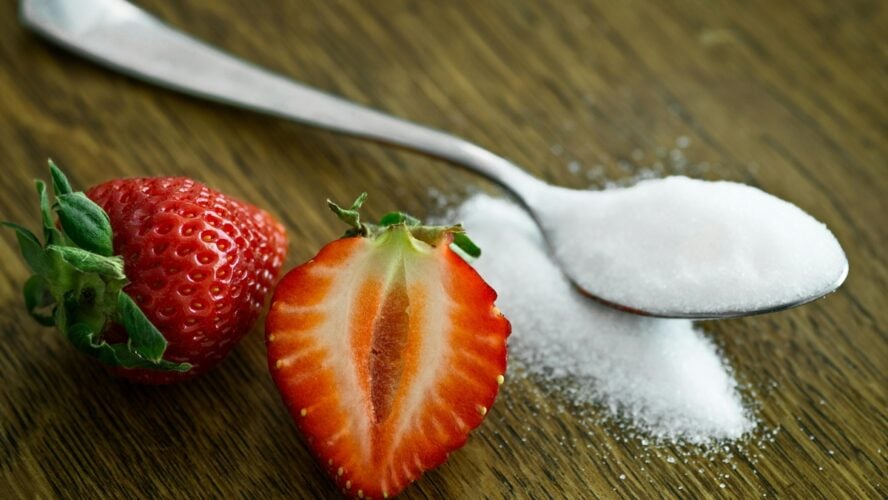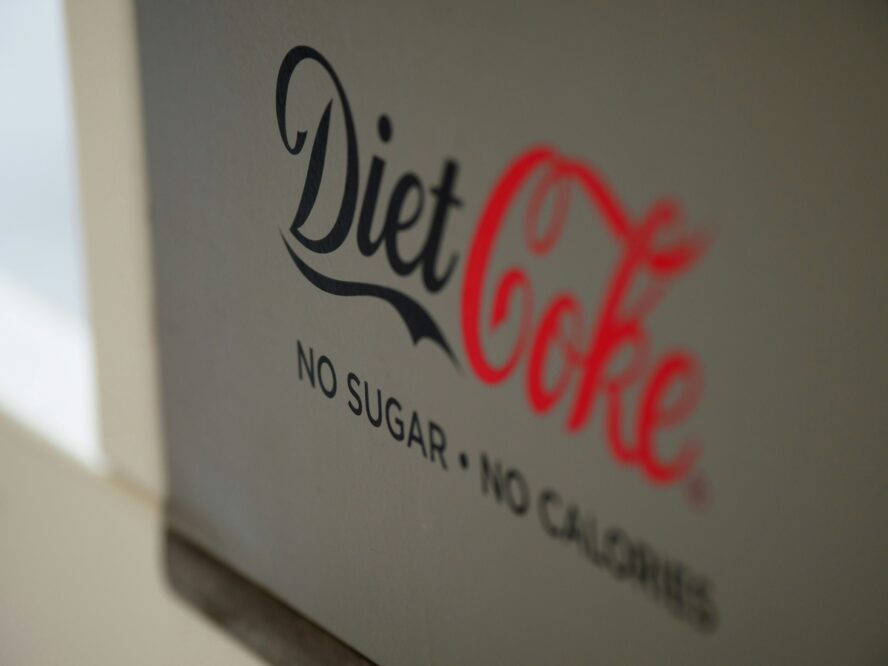
We already knew artificial sweeteners were bad news for cardiovascular health, metabolic health1, and cancer risk2. Now, new research is adding yet another potential risk of artificial sweeteners to the pile: your memory. A large, long-term study of more than 12,000 adults in Brazil found that consuming artificial sweeteners was correlated with faster declines in memory and cognition.
The Details of the Study
The authors of the study, which was just published in Neurology3, tracked consumption of aspartame, saccharin, acesulfame-K, sorbitol, and tagatose over the course of eight years. With the exception of tagatose, high consumption of all of these additives was correlated with more rapid cognitive decline.
“Low and no-calorie sweeteners are often seen as a healthy alternative to sugar,” says Claudia Kimie Suemoto, of the University of São Paulo in Brazil, the study’s lead author. “However, our findings suggest certain sweeteners may have negative effects on brain health over time.”

Participants who reported consuming a daily average of 191mg of aspartame — about the equivalent of one can of diet soda per day — showed a 62% faster decline in memory, equivalent to about 1.6 years of aging. Links proved strongest among those with diabetes (which is ironic, because studies show artificial sweeteners also increase your risk of diabetes). Faster declines in verbal fluency and overall cognition were also observed in people under the age of 60 who reported high consumption of artificial sweeteners.
Food and Drinks with Artificial Sweeteners
This news is especially disappointing because many people turn to artificial sweeteners as a way to avoid sugar and high fructose corn syrup (both of which scientists suspect also affect memory and cognition). But increasingly, many may be consuming high amounts of artificial sweetener without even realizing it due to the types of ultra-processed foods they’re eating.
Given the increased popularity of Diet Coke consumption among young people4, this information couldn’t be coming at a better time. And artificial sweeteners aren’t just found in diet sodas — they’re also present in some flavored water brands like organic Treo, low-sugar ice creams like Halo Top pops, and sugar-free gummy vitamins like Vitafusion. But would people be chugging Diet Coke at the same rapid pace if they knew about the possible risks of aspartame?

The History of Artificial Sweeteners
The FDA first approved aspartame as an artificial sweetener in 1974. Since then, it has approved five other substitutes like sucralose and saccharin, as well as sugar alcohols like xylitol and erythritol. Plant-based sugar substitutes like stevia and monkfruit have also become more prevalent in the past decade, especially given their reputation as a more “natural” option.
But while stevia has indeed been consumed in South America for centuries, its more processed form has been found to have a negative effect on the gut microbiome5, and there are some concerns it could trigger hormone disruption6. Neither stevia nor monkfruit were addressed in this new study.
As an observational study, this research cannot prove causality, just correlation. It also relied on self-reporting, which introduces a higher risk for error. To account for this, Suemoto says “more research is needed to confirm our findings and to investigate if other refined sugar alternatives, such as applesauce, honey, maple syrup, or coconut sugar may be effective alternatives.”
Sources:
- https://pmc.ncbi.nlm.nih.gov/articles/PMC10822749/
- https://www.health.harvard.edu/heart-health/sugar-substitutes-new-cardiovascular-concerns
- https://www.neurology.org/doi/10.1212/WNL.0000000000214023
- https://www.theguardian.com/technology/2025/jun/24/the-fridge-cigarette-how-gen-z-reframed-the-smoking-break
- https://pmc.ncbi.nlm.nih.gov/articles/PMC9028423/
- https://pmc.ncbi.nlm.nih.gov/articles/PMC7584803/

